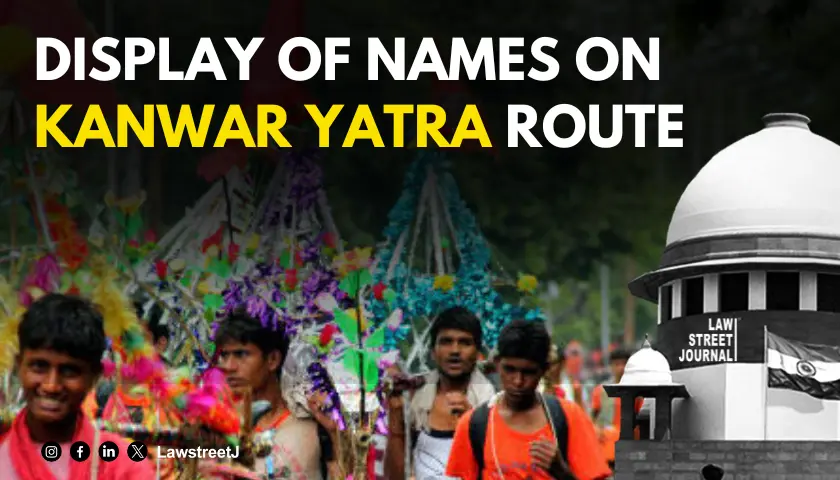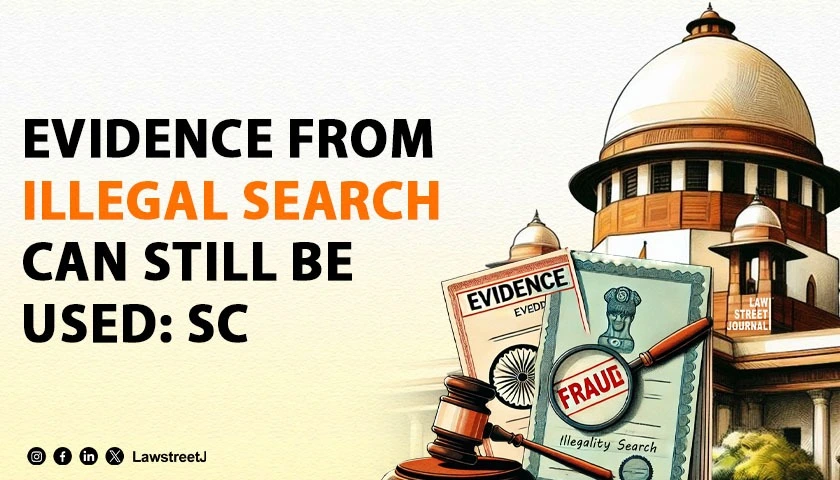NEW DELHI: The Supreme Court was on Friday told some of the eateries in Kanwar Yatra route carried Hindu Gods names but their owners and employees were of different religion which affected Yatris right to take informed decision.
The court, however, said its July 22 is clear that there should not be any insistence by the law enforcement authorities to display names and employees of food sellers, falling in the route of 'Kanwar Yatra' (holy expedition).
The top court extended its July 22 prohibition on enforcing the directive issued by SSP Muzaffarnagar on July 17.
A bench of Justices Hrishikesh Roy and S V N Bhatti said the prohibition on the order would continue till August 5, 2024, even as Uttar Pradesh and Uttarakhand contended the apex court's order was coming in the way of implementation of the provisions of Food and Safety Standards Act, 2006.
The court, however, clarified that the previous order would not prevent anyone from voluntarily displaying the names of owners and staff. "If somebody wants to do it voluntarily, then he can do it but there should not be any insistence," the bench said.
Senior advocate A M Singhvi for the petitioners sought time to file a response to the counter affidavit filed by the Uttar Pradesh government defending its directive.
Also Read: Directive to display food sellers' name during Kanwar Yatra to ensure informed choice, UP govt tells SC
He claimed the Uttar Pradesh government admitted there was a discrimination but it was not of permanent nature. He said there was no such mandate in last 60 years.
Senior advocate Mukul Rohatgi for the state government submitted as per regulations under the Central law Food and Safety Standards Act, 2006, every food seller, including dhabas, was required to display the names of the owners.
He said the interim order stay was not in line with this central law.
The court, however, asked the state government, if it was so, why the directive was not enforced across the state.
Rohatgi said it was a duty of the petitioners to bring it to the notice of the court on the previous date of hearing. He asked the court to fix the matter for consideration on Monday or Friday or the matter would become infructuous.
The Uttarakhand government represented by Deputy Advocate General Jatinder Kumar Sethi said the legal mandate has been enforced across the state during the festival but the interim order by the apex court created problem.
Madhya Pradesh government, on its part, denied issuance of any direction for displaying the names of owners by food sellers.
During the hearing, some of the intervenors 'Kanwar yatris' contended the display of information was not a privileged one, and they wanted to have informed choice.
In its affidavit, the Uttar Pradesh government told the court that the idea behind July 17 directive to all food sellers to display identity of owners and employees was to ensure public safety, order, transparency and informed choice for 'Kanwariyas' who undertake 'yatra' during 'Shravan' month.
It also maintained the directive was temporary in nature for a limited geographical extent. The order was non discriminatory and was brought about keeping in mind religious sentiments for those 'Kanwariyas' who prefer 'sativik' foods only and don’t, even accidently, fall foul of their beliefs.
On July 22, the apex court had prohibited the Uttar Pradesh, Uttarakhand and Madhya Pradesh governments from enforcing their controversial directives.
"The food sellers (including dhaba owners, restaurants, foods and vegetable sellers, hawkers, etc) may be required to display the kind of food that they are serving to the Kanwariyas. But they must not be forced to display the name/identity of the owners and also the employees, deployed in their respective establishments," the court had ordered.
An NGO, Association For Protection of Civil Rights (APCR), All India Trinamool Congress leader, MP Mahua Moitra and academician Prof Apoorvanand and others approached the SC, claiming the directive issued by SSP Muzaffarnagar was discriminatory and in violation of Article 14, 15, 17, 19(1)(g), and 21 of the Constitution.

















